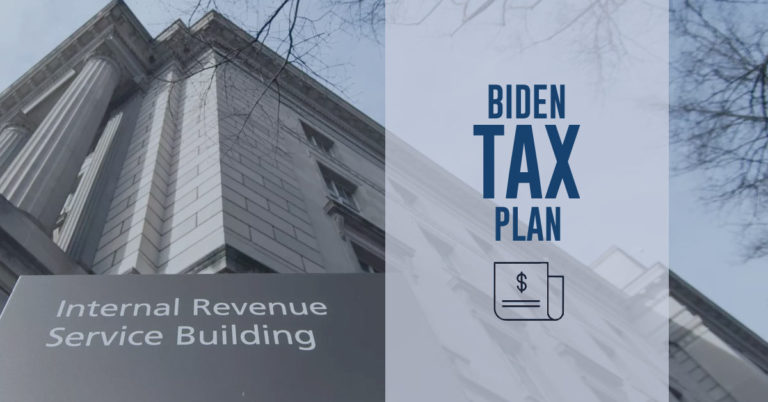With tax refund season in full swing, it’s important to be cautious and aware of potential scams. Scammers are always looking for ways to steal personal information and money, making it essential for taxpayers to stay on guard.
The IRS recently published its Dirty Dozen tax scams for 2023, highlighting the most common tactics used by fraudsters to prey on unsuspecting victims.
In this article, we’ll focus on the final six scams from the list. Be sure to check out our first article in the series to learn about the first six.
Remember to take steps to protect your personal information and stay informed to avoid becoming a victim of tax fraud.
2023 Dirty Dozen Tax Scams Summary (Part 2)
Social media: Fraudulent form filing and bad advice
Social media can circulate inaccurate or misleading tax information.
The IRS reports it has recently seen several examples. These can involve common tax documents like:
- Form W-2
- Form 8944. While this is a real tax form, it is intended for a very limited, specialized group
Both schemes encourage people to submit false, inaccurate information in hopes of getting a refund.
Taxpayers should always remember that if something sounds too good to be true, it probably is.
Spearphishing and Cybersecurity for Tax Professionals
Phishing is a term given to emails or text messages designed to get users to provide personal information. Spearphishing is a tailored phishing attempt to a specific organization or business.
The IRS is warning tax professionals about spearphishing because there is greater potential for harm if the tax preparer has a data breach. A successful spearphishing attack can ultimately steal client data and the tax preparer’s identity, allowing the thief to file fraudulent returns.
Offer in Compromise Mills
Offers in Compromise are an important program to help people who can’t pay to settle their federal tax debts.
But “mills” can aggressively promote Offers in Compromise in misleading ways to people who clearly don’t meet the qualifications, frequently costing taxpayers thousands of dollars.
A taxpayer can check their eligibility for free using the IRS Offer in Compromise Pre-Qualifier tool.
Schemes aimed at high-income filers
Charitable Remainder Annuity Trust (CRAT)
Charitable Remainder Trusts are irrevocable trusts that let individuals donate assets to charity and draw annual income for life or a specific period. Unfortunately, these trusts are sometimes misused by promoters, advisors and taxpayers to try to eliminate ordinary income and/or capital gain on the sale of the property.
Monetized Installment Sales
In these potentially abusive transactions, promoters find taxpayers seeking to defer the recognition of gain upon the sale of appreciated property. They facilitate a purported monetized installment sale for the taxpayer in exchange for a fee.
Bogus Tax Avoidance Strategies
Micro-captive insurance arrangements
A micro-captive is an insurance company whose owners elect to be taxed on the captive’s investment income only.
Abusive micro-captives involve schemes that lack many of the attributes of legitimate insurance.
These structures often include implausible risks, failure to match genuine business needs and, in many cases, unnecessary duplication of the taxpayer’s commercial coverages.
Syndicated conservation easements
A conservation easement is a restriction on the use of real property.
Generally, taxpayers may claim a charitable contribution deduction for the fair market value of a conservation easement transferred to a charity if the transfer meets the requirements of Internal Revenue Code 170.
In abusive arrangements, which generate high fees for promoters, participants attempt to game the tax system with grossly inflated tax deductions.
Schemes with International Elements
Offshore accounts and digital assets
The IRS continues to scrutinize attempts to hide assets in offshore accounts and accounts holding digital assets, such as cryptocurrency. The IRS continues to identify individuals who attempt to conceal income in offshore banks, brokerage accounts, digital asset accounts and nominee entities.
Asset protection professionals and unscrupulous promoters continue to lure U.S. persons into placing their assets in offshore accounts and structures saying they are out of reach of the IRS. These assertions are not true. The IRS can identify and track anonymous transactions of foreign financial accounts as well as digital assets.
Maltese individual retirement arrangements misusing treaty
These arrangements involve U.S. citizens or residents who attempt to avoid U.S. tax by contributing to foreign individual retirement arrangements in Malta (or potentially other host countries). The participants in these transactions typically lack any local connection to the host country.
By improperly asserting the foreign arrangement as a “pension fund” for U.S. tax treaty purposes, the U.S. taxpayer misconstrues the relevant treaty provisions and improperly claims an exemption from U.S. income tax on gains and earnings in and distributions from the foreign individual retirement arrangement.
Puerto Rican and foreign captive insurance
U.S. business owners of closely held entities participate in a purported insurance arrangement with a Puerto Rican or other foreign corporation in which the U.S. business owner has a financial interest. The U.S. business owner (or a related entity) claims a deduction for amounts paid as premiums for “insurance coverage” provided by a fronting carrier, which reinsures the “coverage” with the Puerto Rican or other foreign corporation.
Despite being labeled as insurance, these arrangements lack many of the attributes of legitimate insurance.
Where appropriate, the IRS will challenge the purported tax benefits from these types of transactions and impose penalties.
The IRS Criminal Investigation Division is always on the lookout for promoters and participants of these types of schemes. Taxpayers should think twice before including questionable arrangements like this on their tax returns. After all, taxpayers are legally responsible for what’s on their return, not a promoter making promises and charging high fees.
In conclusion, it’s essential for taxpayers to be cautious during tax season and stay informed about potential scams. The 2023 Dirty Dozen tax scams list highlights some of the most common schemes used by fraudsters to steal personal information and money. Taxpayers should remain vigilant against social media scams, spearphishing attacks, bogus tax avoidance strategies, and other schemes targeting international aspects or high-income people. By taking steps to protect personal information, staying informed, and working with reputable tax professionals you trust, you can avoid becoming victims of tax fraud.
More Information
If you have questions, contact us to discuss your situation.
To check out our other articles on business topics, click here.

Patty Ward
Patty has more than 30 years experience in public accounting. She reviews tax returns for high net worth clients, focusing on individual tax work. Her mission is to provide high level service to her clients, reducing their tax burdens, keeping them informed and instilling confidence.
About Smith Patrick CPAs
Smith Patrick CPAs is a boutique, St. Louis-based, CPA firm dedicated to providing personal guidance on taxes, investment advice and financial service to forward-thinking businesses and financially active individuals. For over 30 years, our firm has focused on providing excellent service to business owners and high-net worth families across the country. Investment Advisory Services are offered through Wealth Management, LLC, a Registered Investment Advisor.





